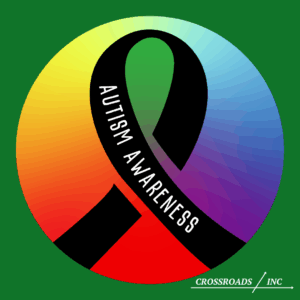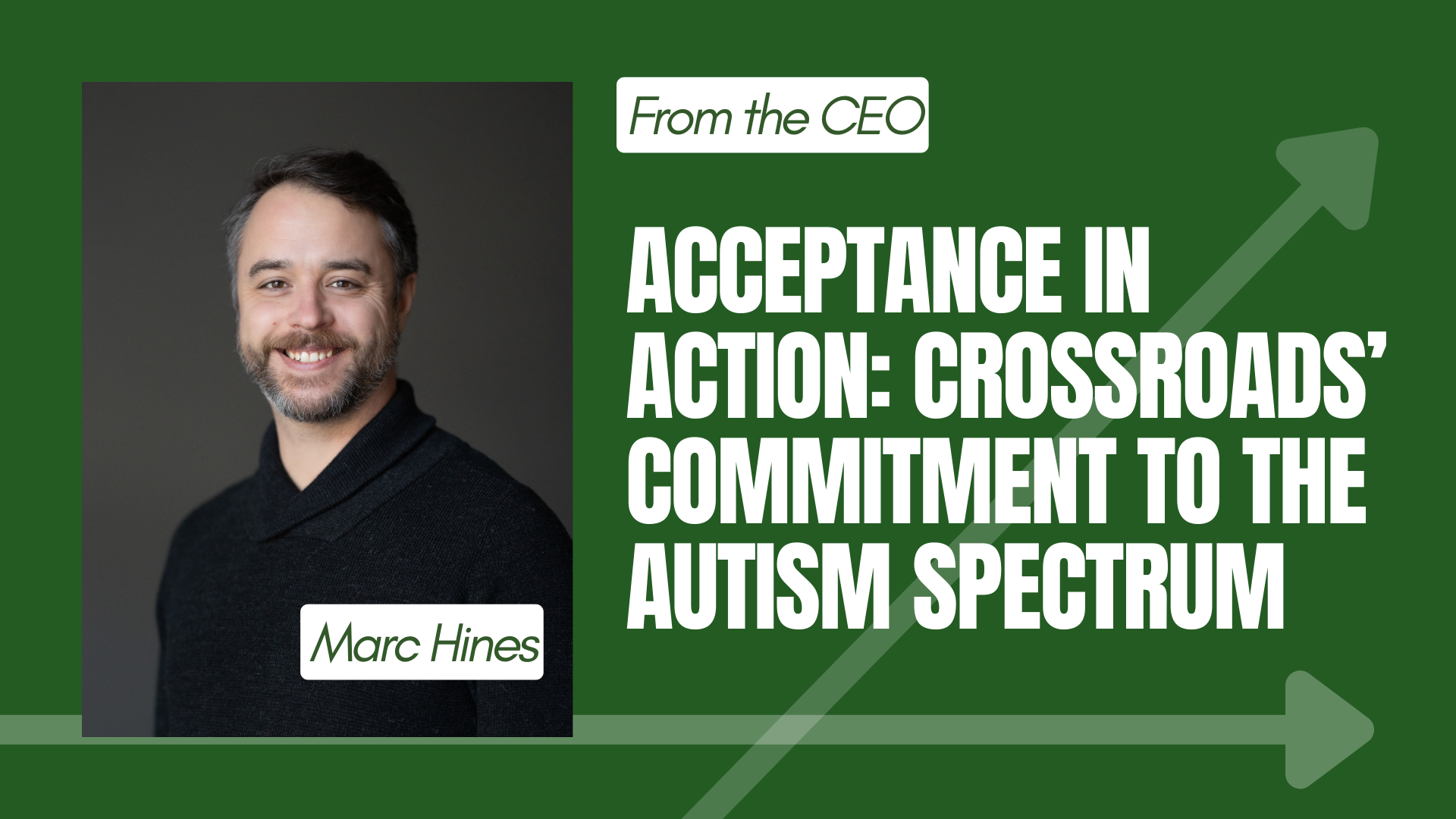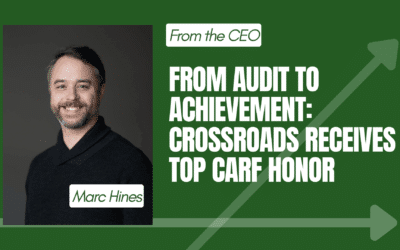Dear Stakeholders,
 April is National Autism Acceptance Month. That marks a change from the recent past when April was known as Autism Awareness Month. Though the difference is only a single word, it’s worth celebrating. The nation, and the world, are certainly aware of autism. That’s important, but the next step, acceptance, is critical for the true inclusion of people on the autism spectrum—in communities, schools, media, healthcare, and the workplace.
April is National Autism Acceptance Month. That marks a change from the recent past when April was known as Autism Awareness Month. Though the difference is only a single word, it’s worth celebrating. The nation, and the world, are certainly aware of autism. That’s important, but the next step, acceptance, is critical for the true inclusion of people on the autism spectrum—in communities, schools, media, healthcare, and the workplace.
In many respects, there is reason to celebrate. There’s a Sesame Street character with autism. Many of us have probably binged a season or two of Love on the Spectrum. On most days, I see someone wearing a t-shirt saying they love someone with autism or I find myself behind someone with a bumper sticker of autism iconography. Slowly, autism has become part of the cultural fabric. There’s a lot to love about that.
But insidious and dangerous rhetoric about autism persists. The Centers for Disease Control recently published data stating that 1 in every 31 eight-year-olds are diagnosed with autism. That’s an increase over the last data set showing every 1 in 38 children. When I first started in this field 19 years ago, I was told something like 1 in 100.
This week, the United States Secretary of Health and Humans Services gave a long speech about the “epidemic” of autism, citing increasing incidence of the diagnosis as proof. He also has made, and continues to make, spurious claims about a causal link between the MMR vaccine and autism. He cavalierly asserted that autism is a preventable disease.
Autism is a disorder, not a disease. That is a subtle, but profound difference.
With respect to the vaccine issue, I’ll offer some data for consideration. In 2025, and in all of human history, there have been exactly zero cases of autism directly and causally linked to vaccines by a reputable researcher or clinician. In 2025, two people have died of measles. There have been over 300 confirmed cases of measles so far this year, already surpassing CDC data from 2024. This is happening some 25 years after measles was considered eradicated in the US.
As for the increase in incidence of autism diagnoses, I tend to think of autism diagnostic practices like fishing. Since we started making and tracking diagnoses (fishing), we’ve made vast improvements in testing and early detection. If autism diagnoses are the fish, then testing and detection are the nets. And those nets are now much bigger. The mesh is tighter. We’re casting those nets more often and in more places. And now, we’re catching more fish. That doesn’t necessarily mean there are more fish in the sea; it just means we’re better at catching them.
The truth is, there are myriad potential causes for autism: genetic, social, environmental. Any person, researcher or otherwise, who says with certainty that they know the cause of autism is either misinformed or deliberately misinforming. That’s not a satisfying or clear answer for the cause of autism, but it’s where the science is.
Perhaps the most incendiary comment from that speech went like this:
“Autism destroys families, and more importantly, it destroys our greatest resource, which is our children. These children should not be suffering like this. These are kids who will never pay taxes, they’ll never hold a job, they’ll never play baseball, they’ll never write a poem, they’ll never go out on a date. Many of them will never use a toilet unassisted. “
While some people on the profoundly affected end of the spectrum may fit those descriptions, there are tens of thousands of people with autism who do not. At Crossroads, we serve people across the spectrum. Some have jobs and pay taxes. Some have romantic partners or play sports.
Let me be clear. There are people with autism who endure monumental challenges: rigidity, repetitive behavior, self-injury, tantrums, and communication deficits. There is trauma and struggle for some people with autism and those that love and care for them. Much of that stems from lack of access to early intervention and a society that hasn’t quite figured out what to do. But broad statements about the tortured existence of missed developmental milestones ignore the joy and value possible in every life—lives worth living.
This April, and every month, Crossroads accepts autism. The whole spectrum.
In Advocacy,
Marc



